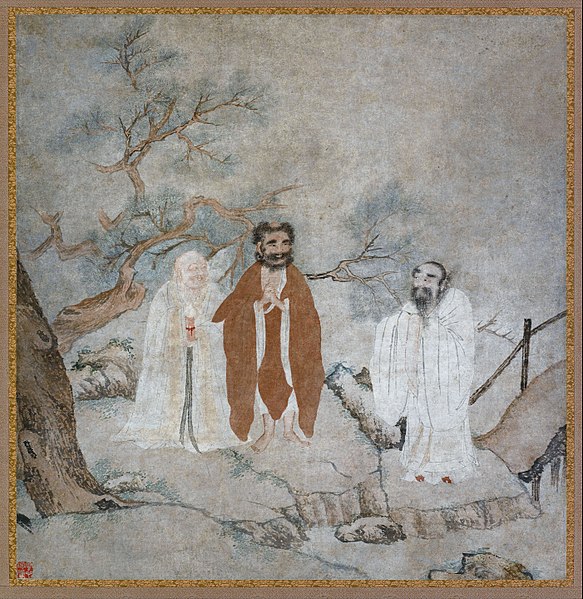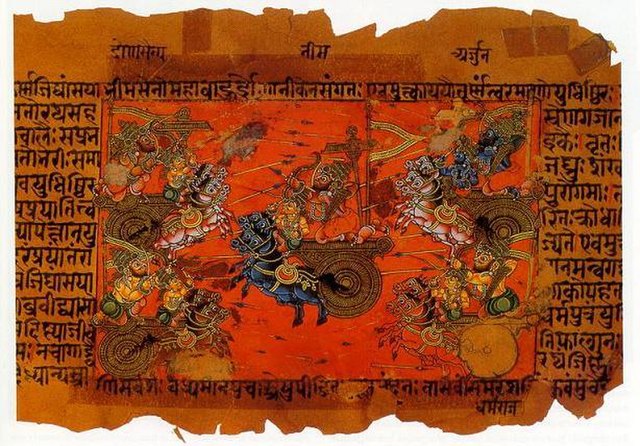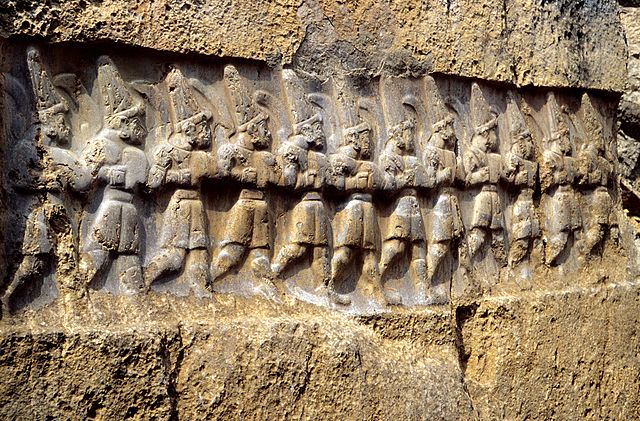Religion is a range of social-cultural systems, including designated behaviors and practices, morals, beliefs, worldviews, texts, sanctified places, prophecies, ethics, or organizations, that generally relate humanity to supernatural, transcendental, and spiritual elements—although there is no scholarly consensus over what precisely constitutes a religion. Different religions may or may not contain various elements ranging from the divine, sacredness, faith, and a supernatural being or beings.
The Buddha, Laozi, and Confucius – founders of Buddhism, Taoism (Daoism) and Confucianism – in a Ming dynasty painting
Budazhap Shiretorov (Будажап Цыреторов), the head shaman of the religious community Altan Serge (Алтан Сэргэ) in Buryatia
A manuscript depicting the climactic Kurukshetra War in Hindu epic Mahabharata. The Mahabharata is the longest epic poem known and a key source of Hindu mythology.
The Yazılıkaya sanctuary in Turkey, with the twelve gods of the underworld
Morality is the differentiation of intentions, decisions and actions between those that are distinguished as proper (right) and those that are improper (wrong). Morality can be a body of standards or principles derived from a code of conduct from a particular philosophy, religion or culture, or it can derive from a standard that a person believes should be universal. Morality may also be specifically synonymous with "goodness", "appropriateness" or "rightness".
Allegory with a portrait of a Venetian senator (Allegory of the morality of earthly things), attributed to Tintoretto, 1585
Immanuel Kant introduced the categorical imperative: "Act only according to that maxim whereby you can, at the same time, will that it should become a universal law."






